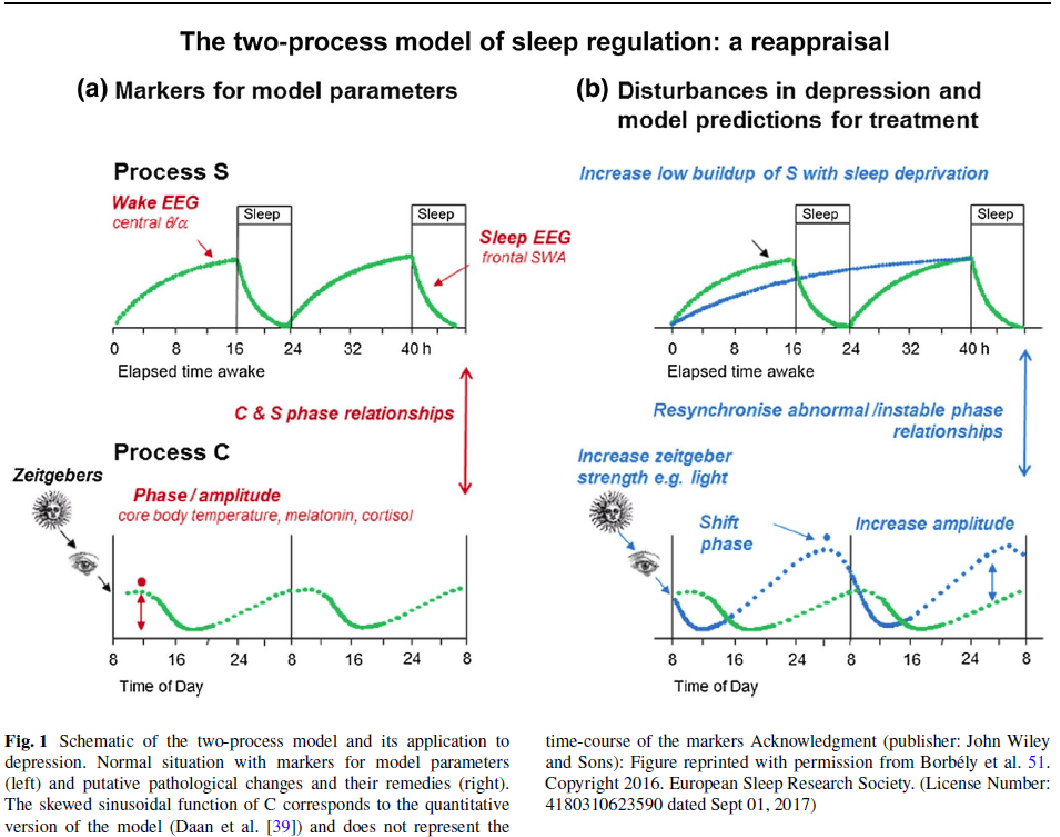Chronobiological theories of mood disorders
New blog post about this comprehensive review HERE.
Abstract: Major depressive disorder (MDD) remains the most prevalent mental disorder and a leading cause of dis-ability, affecting approximately 100 million adults world-wide.
The disorder is characterized by a constellation of symptoms affecting mood, anxiety, neurochemical balance, sleep patterns, and circadian and/or seasonal rhythm entrainment. However, the mechanisms underlying the association between chronobiological parameters and depression remain unknown.

We aimed to synthesize the literature investigating chronobiological theories of mood disorders. Current treatments primarily include tricyclic antidepressants and selective serotonin reuptake inhibitors, which are known to increase extracellular concentrations of monoamine neu-rotransmitters. However, these antidepressants do not treat the sleep disturbances or circadian and/or seasonal rhythm dysfunctions associated with depressive disorders.
Several theories associating sleep and circadian rhythm disturbances with depression have been proposed. Current evidence supports the existence of associations between these, but the direction of causality remains elusive.
Given the existence of chronobiological disturbances in depression and evidence regarding their treatment in improving depression, a chronobiological approach, including timely use of light and melatonin agonists, could complement the treatment of MDD.
Hi! I am a robot. I just upvoted you! I found similar content that readers might be interested in:
https://link.springer.com/article/10.1007/s00406-017-0835-5
Downvoting a post can decrease pending rewards and make it less visible. Common reasons:
Submit
You are an excellent robot.
Downvoting a post can decrease pending rewards and make it less visible. Common reasons:
Submit
The melatonin rhythm: both a clock and a calendar https://www.ncbi.nlm.nih.gov/pubmed/8395408
Downvoting a post can decrease pending rewards and make it less visible. Common reasons:
Submit
Melatonin: a clock-output, a clock-input https://www.ncbi.nlm.nih.gov/pubmed/12622838
Downvoting a post can decrease pending rewards and make it less visible. Common reasons:
Submit
Circadian rhythms and mood regulation: insights from pre-clinical models https://www.ncbi.nlm.nih.gov/pubmed/21835596
Downvoting a post can decrease pending rewards and make it less visible. Common reasons:
Submit